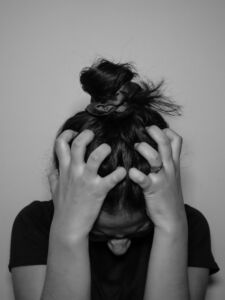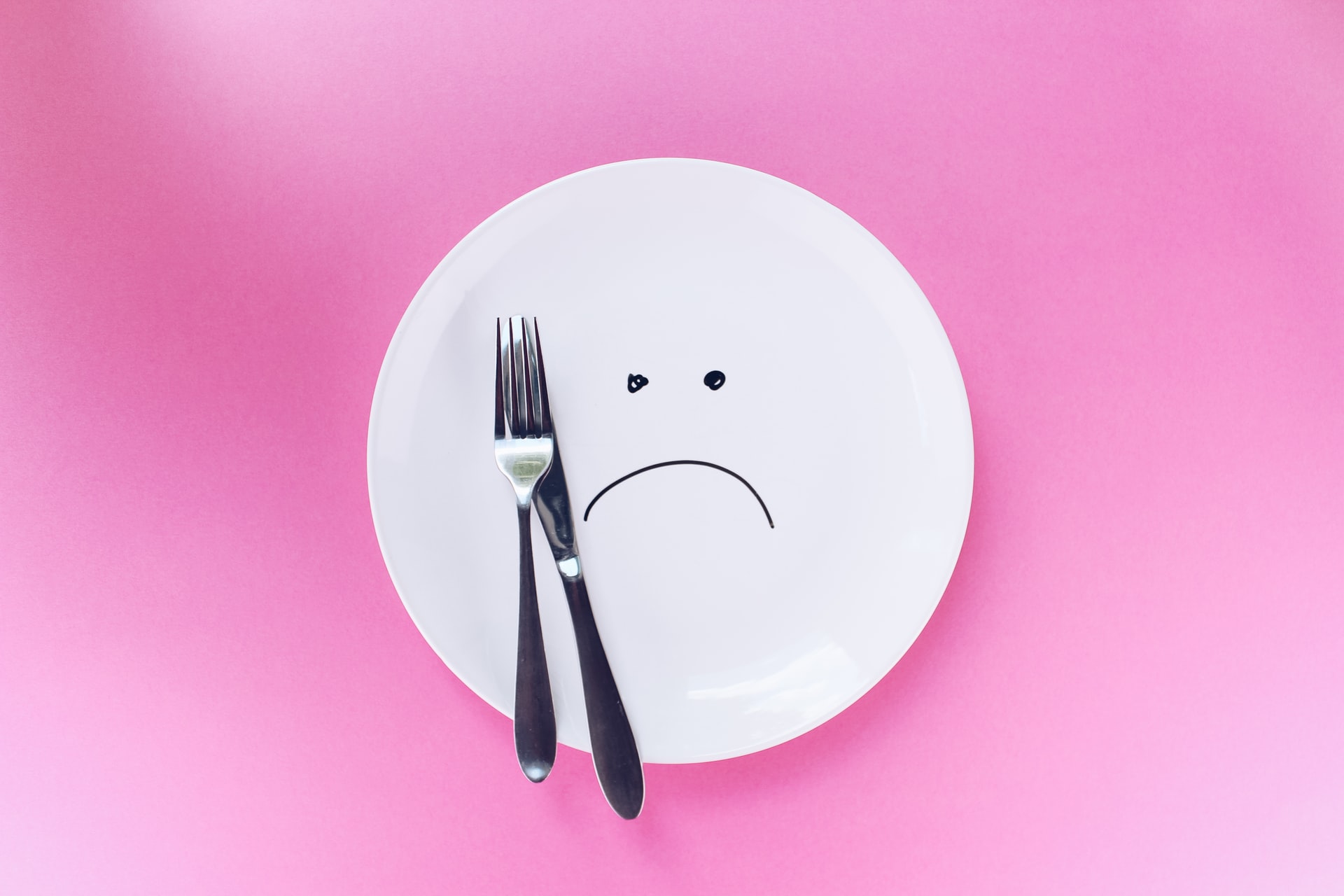It can be challenging living with a condition like obsessive-compulsive disorder, and many people find themselves feeling more and more isolated from society as a result of it. It is the kind of thing that can easily dominate a person’s daily life and make functioning normally in society feel impossibly challenging.
However, there are treatments available and things that can be done to help a person better manage their symptoms and be able to lead a relatively normal life.
What is obsessive-compulsive disorder (OCD)?
Obsessive-compulsive disorder (OCD) is a mental health disorder characterized by unwanted, recurring thoughts and repetitive behaviors that can get severe enough to interfere with daily life. These thoughts, images, or impulses become obsessions that can cause a lot of anxiety.
 Obsessive-compulsive disorder is generally marked by repetitive behaviors or mental rituals that a person uses to try and ease or stop their obsessive thoughts. Some examples of compulsions include obsessive cleaning of hands or household objects, always ordering objects in a highly specific way, silently repeating certain words or phrases, or counting to a particular number every time certain tasks are performed.
Obsessive-compulsive disorder is generally marked by repetitive behaviors or mental rituals that a person uses to try and ease or stop their obsessive thoughts. Some examples of compulsions include obsessive cleaning of hands or household objects, always ordering objects in a highly specific way, silently repeating certain words or phrases, or counting to a particular number every time certain tasks are performed.
These obsessions and compulsions can cause significant distress and interfere with a person’s ability to function normally in their day-to-day life.
Underlying the external symptoms of OCD are a variety of thoughts that a person may struggle with. For example, an extreme fear of dirt or contamination by foreign objects could lead to obsessive cleaning rituals. Difficulty dealing with the unknown and any uncertainties common to life, or an excessive need for things to be balanced and orderly, can lead to attempts to maintain strict order in the environment that a person can control.
Other concerns include a struggle with unwanted thoughts about aggression toward others or thoughts of harming themselves, which then leads to compulsive behaviors to try and soothe the resulting anxiety.
OCD can be quite challenging
Can you imagine being bombarded by thoughts or images, and not being able to control them? Imagine, too, if you will, that these thoughts and images may sometimes be violent, or sexual, and often irrational and intrusive. These thoughts may run quite counter to your values or ethics, which only adds to why they are distressing. It can be overwhelming, to say the least.
People with OCD generally find that they cannot control these obsessive habits or thoughts. While they may experience some relief from their anxiety through compulsive behaviors, they do not find pleasure in their compulsions. They may spend multiple hours a day focused on these thoughts and behaviors, causing enough problems that these behaviors begin to cause problems related to their day-to-day functioning at home or in public.
Alongside OCD, some people may also have a tic disorder, which is when they compulsively find themselves performing repetitive movements or making repetitive sounds. A motor tic is a sudden, repetitive movement, like a head or shoulder jerk, eye movements like blinking, shoulder shrugs, facial grimaces, or a particular way of fidgeting with the fingers.
There are also vocal tics, which include repetitively clearing the throat, or making sniffing, grunting, squeaking, or other repeated sounds. It is common for people who are diagnosed with OCD to also be diagnosed with another mood disorder or anxiety disorder. These tics, in addition to obsessive thoughts and compulsive behaviors, can cause distress in daily life.
However, effective treatment is available to help people who struggle with these kinds of obsessive-compulsive thoughts and behaviors. This treatment can help someone with OCD manage their symptoms so that they can have an improved quality of life.
Signs of OCD
Some of the signs of OCD to look out for include obsessions and compulsions. A person may have OCD if they have recurring, unwanted, disturbing, and intrusive thoughts, images, or urges that trigger anxiety or distress, and if these cause them to perform repetitive behaviors such as counting, checking, and handwashing to reduce the feelings of anxiety or distress caused. These behaviors will often take up time and space in a person’s day.
 Other signs to look out for include avoidance behaviors such as steering clear of places, objects, or certain situations because of fear or anxiety. Additionally, if you feel stressed or on edge when you’re unable to perform your compulsions, that could also point to OCD. Only a qualified mental health professional can diagnose and treat OCD. Reach out and speak to a professional if you or a loved one is experiencing these symptoms.
Other signs to look out for include avoidance behaviors such as steering clear of places, objects, or certain situations because of fear or anxiety. Additionally, if you feel stressed or on edge when you’re unable to perform your compulsions, that could also point to OCD. Only a qualified mental health professional can diagnose and treat OCD. Reach out and speak to a professional if you or a loved one is experiencing these symptoms.
Dealing Effectively with OCD
One of the first things a person who struggles with OCD should do is to acknowledge that they have a problem and recognize that they need to get help. Once they have taken this step, it is important to realize that there are resources available and people out there who can help. It’s important to learn more about OCD and understand what they are dealing with, as education will help them stick to a treatment plan.
Some helpful steps for dealing with OCD include the following:
Identify triggers One step toward dealing with OCD is taking time to identify the kind of situations that could trigger obsessive-compulsive thoughts and behaviors. Keeping a journal and writing down your thoughts could also help you identify how repetitive a thought or behavior is and identify areas where you need strategies to deal with them.
Your counselor or therapist could also help you to reflect on your life and identify what typically brings on your symptoms. When you’re able to understand your triggers, it could help you become more aware of the situations that bring on those behaviors, and help you to understand the underlying reasons behind those behaviors and anticipate the urges to perform compulsive behaviors.
Practice self-care Self-care is important in the treatment of many mental health disorders, and the same is true of OCD. You need to make sure that you are getting enough sleep, eating enough healthy food, getting regular exercise, and limiting the use of substances like caffeine and alcohol. A healthy body is an important part of keeping one’s mind healthy.
You can also practice things that help with relaxation, such as doing yoga or meditation, getting a massage, and practicing deep breathing, in order to help reduce excessive feelings of anxiety.
In addition to focusing on your physical health, other practices can be beneficial for your mental health as well. For example, setting aside a specific time for worry and having a limited period for thinking about those things while resolving to leave those thoughts aside for the rest of the day can liberate large parts of your day from anxiety.
A way of helping you not to focus too much on those kinds of thoughts is by staying busy and occupying your mind with work, hobbies, and other activities that can keep your mind off the things that worry you. Another practice that is helpful is learning to stay present in the moment, observing what is happening right now instead of reviewing the past or worrying about the future.
Don’t isolate yourself While it may be tempting to avoid interactions with other people while you are struggling with obsessive-compulsive disorder, it is good to remember that you are not alone in the struggle. A support group is one way to find positive connections with others who understand what you are going through, but you should also try to reach out to your family and friends for support.
Maintaining positive interactions and reinforcing positive communication by keeping positive traditions and occasions with people who care about you is important. While you may find criticism among people you interact with, possibly making your symptoms worse, it’s important to remember that these are symptoms of your OCD and not your personality traits.
Seek professional help One way to learn more about OCD is by finding a counselor to meet with or by joining a support group for people who struggle with OCD. Getting counseling from a mental health professional will provide answers to questions you may have about this disorder.
Your counselor will help you deal with the symptoms in a way that will help you improve your day-to-day life. Your treatment plan will likely involve talk therapy and medication to handle the symptoms of anxiety when they are severe and affect your daily functioning.
In addition, joining a support group can be helpful, as they may direct you to other resources and encourage you as you connect with others who share similar struggles.
While it can feel debilitating to live with obsessive-compulsive disorder, especially if it is severe, it is something that can be treated, and there are resources and people available who can help you to find a way forward. With the right help and treatment plan, you can learn how to cope well and live a happy and fulfilling life. Call our office today to learn more and to schedule an appointment with a therapist in California.
Photos:
“Stressed”, Courtesy of Simran Sood, Unsplash.com, CC0 License; “Stressed”, Courtesy of Getty Images, Unsplash.com, Unsplash+ License
-
Kate Motaung: Curator
Kate Motaung is the Senior Writer, Editor, and Content Manager for a multi-state company. She is the author of several books including Letters to Grief, 101 Prayers for Comfort in Difficult Times, and A Place to Land: A Story of Longing and Belonging...
DISCLAIMER: THIS ARTICLE DOES NOT PROVIDE MEDICAL ADVICE
Articles are intended for informational purposes only and do not constitute medical advice; the Content is not intended to be a substitute for professional medical advice, diagnosis, or treatment. All opinions expressed by authors and quoted sources are their own and do not necessarily reflect the opinions of the editors, publishers or editorial boards of Irvine Christian Counseling. This website does not recommend or endorse any specific tests, physicians, products, procedures, opinions, or other information that may be mentioned on the Site. Reliance on any information provided by this website is solely at your own risk.





